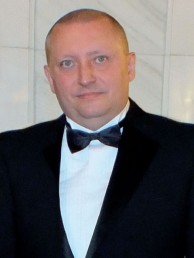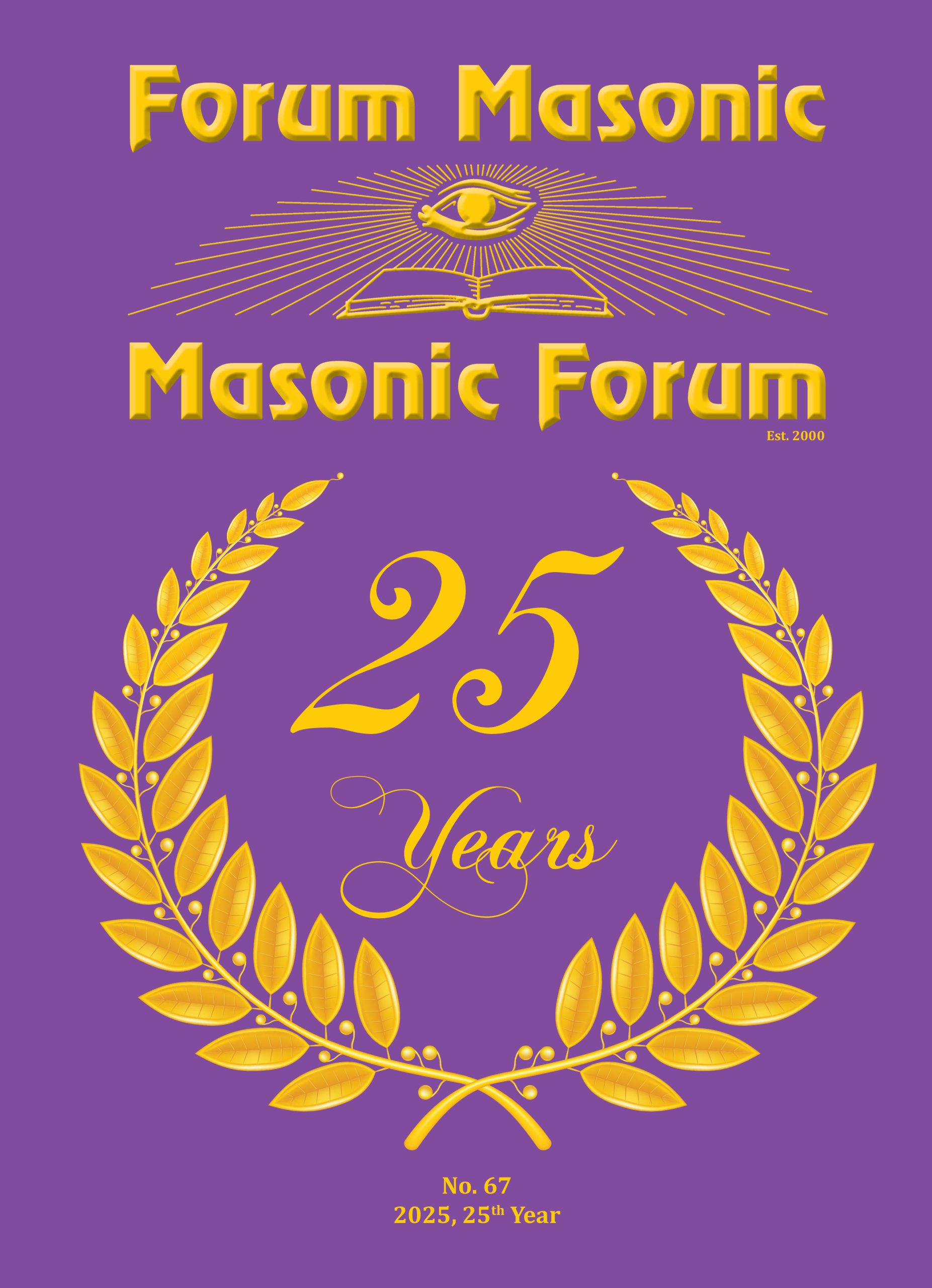CLAUDIU IONESCU
Past Master, FORUM Lodge No. 64 and AGORA Lodge No.175, Bucharest, NGLR;
Assistant Grand Master for Foreign Relations, Grand Lodge of Moldova;
Founder & Director, MASONIC FORUM Magazine
 Many readers – both in Romania and abroad – have asked when will appear a new issue of MASONIC FORUM, telling that my publication is a moral compass and a cultural landmark since its first issue, in 2000. A lot of national and international events happened this year, since the previous edition of the magazine. Some are part of the natural, some made me smile with indulgence, I dissaprove anothers. Because Freemasonry means, among other things, to have a free spirit. But freedom is conditioned by the level of culture as well as by our ability to understand. Fortunately, I met true and complex men, worthy of respect, who know how to build.
Many readers – both in Romania and abroad – have asked when will appear a new issue of MASONIC FORUM, telling that my publication is a moral compass and a cultural landmark since its first issue, in 2000. A lot of national and international events happened this year, since the previous edition of the magazine. Some are part of the natural, some made me smile with indulgence, I dissaprove anothers. Because Freemasonry means, among other things, to have a free spirit. But freedom is conditioned by the level of culture as well as by our ability to understand. Fortunately, I met true and complex men, worthy of respect, who know how to build.
A mason who is very anchored in reality, Akram Elias, Past Grand Master of the Grand Lodge of Washington DC, told me, few years ago, that „Freemasonry and society are inseparable. (…) We’re now going through a third, most fundamental revolution in the human race – and it is the knowledge revolution. Information is the means to communicate that knowledge. Individuals, for the first time, have access to information, can process it, can deduce knowledge from it and act upon that knowledge independently like never seen before in the recorded history of humanity”. Another initiated man of our times, Gustavo Raffi, Past Grand Master of Grande Oriente d’Italia and Honorary Director of Masonic Forum, said about the undertaken role: „Masonic Forum gives to all of us the possibility to reflect together on the great issues that concern our society, and on how Freemasonry can act to give its contribution. We wish it could have an ever more widespread circulation, not only among our Brethren, but in the broad cultural outlook”. Yes, we’re moving forward!
I had the pleasure and honour to become editor and director of the newsletter of the Supreme Council of the Scottish Rite of Romania, a publication created by the Sovereign Grand Commander, brother Stelian Nistor. In this newsletter we try to transpose into words the deeds that Scottish Rite began to do them.
Masonry does not initiate nor participate in political or religious debates. But the Masons are those who created the United States of America, they have made also revolutions in Europe, changing political regimes. Masons have created the Grand Romania in 1918. But, quoting a friend of mine, where were the Masons when Romania lost Moldova or Cadrilater (Southern Dobrogea)? We legitimize us with our glorious past. Fortunately, we have it! But with what will identify those who will come after us? Words unsupported by deeds will come to the trash can of history. Likewise the upstarts. Freemasonry, like any organization made up of people, is subject to the same laws that govern the dynamics of social groups.
The concept of speculative Masonry appeared 300 years ago, when the first Grand Lodge – United Grand Lodge of England – was born. 1717 is the moment when the operative Freemasonry transformed itself into a speculative one, said a Romanian masonic scholar and leader, Dan Amedeo Lăzărescu, my godfather for the Craft. Nowadays, Freemasonry is in decline, in the majority of countries of tradition. The number of members is declining, the average age is increasingly high. Masons impact in society is almost zero. An issue extensively discussed within the Mother Grand Lodge of the World is about seeking solutions for keeping the membership. On the other hand, Freemasonry, in the former Communist countries, had a continuous growth in the last few decades. Romania is on top of this dynamic. In South America, Freemasonry is a social phenomenon. Actually, where are we going? We risk to become mere ritual professionals, as said the same friend of mine? We need leaders. There is a big penury of leaders, globally, at all levels. I note that, unfortunately, there are increasingly more managers of Freemasonry, some raised in or just perverted by the limitative corporatist system, others who can be described only by tenacity, doing everything possible to climb the ladder (I do not mean Jacob ladder!), believing that found their vocation in the administration of the (social) Masonic groups within their own jurisdictions.
Another reason I like Freemasonry – is a constant challenge.




